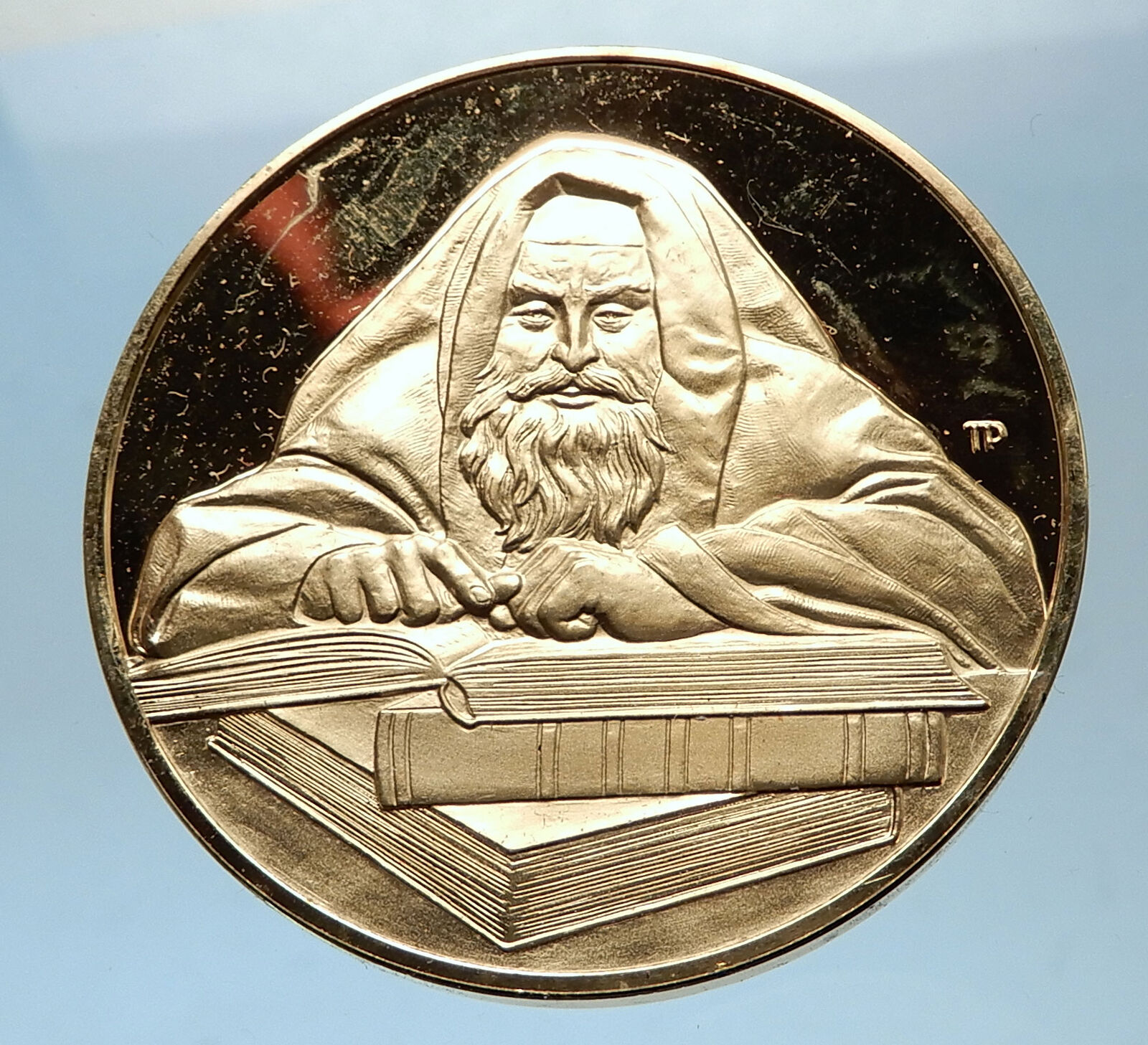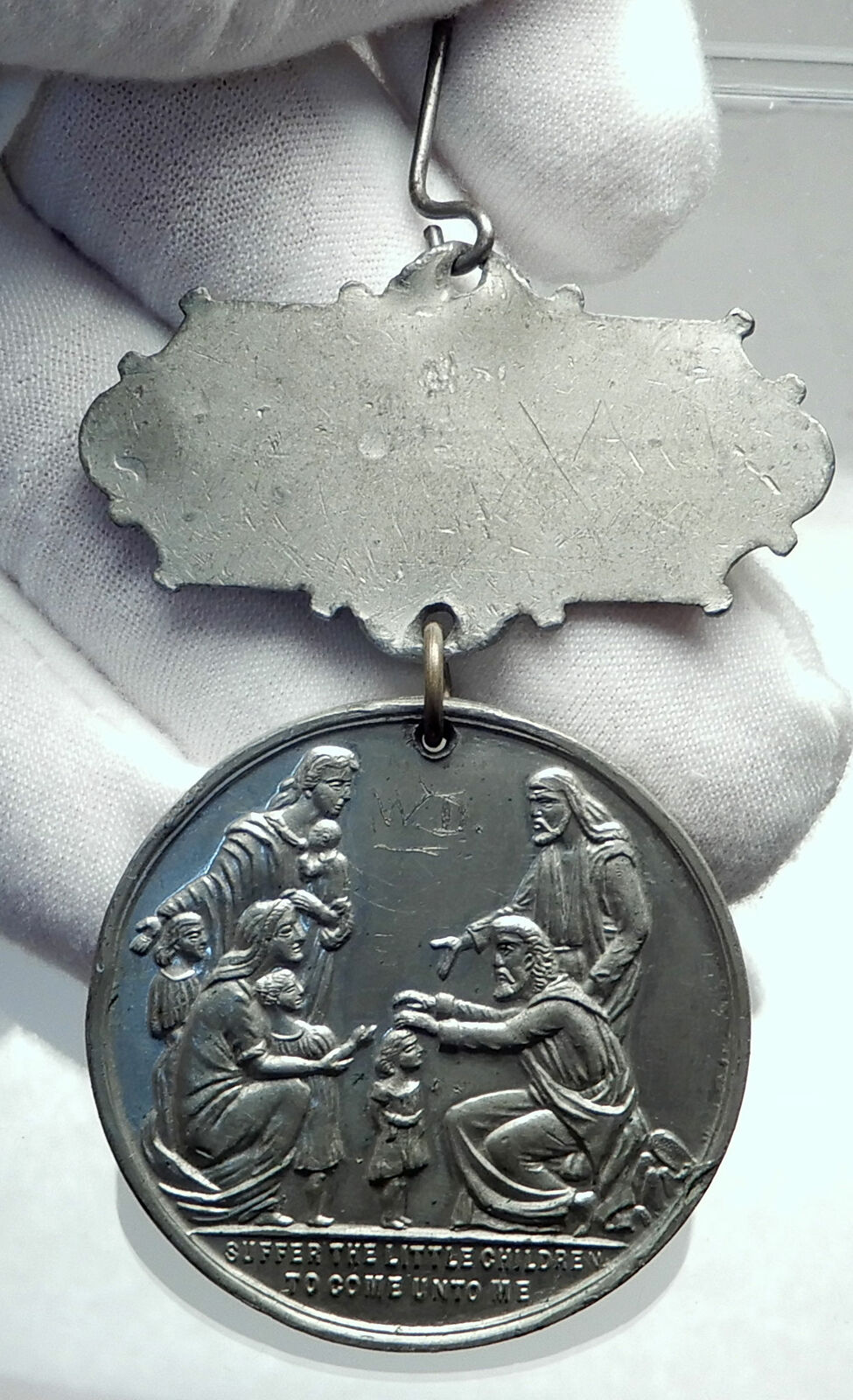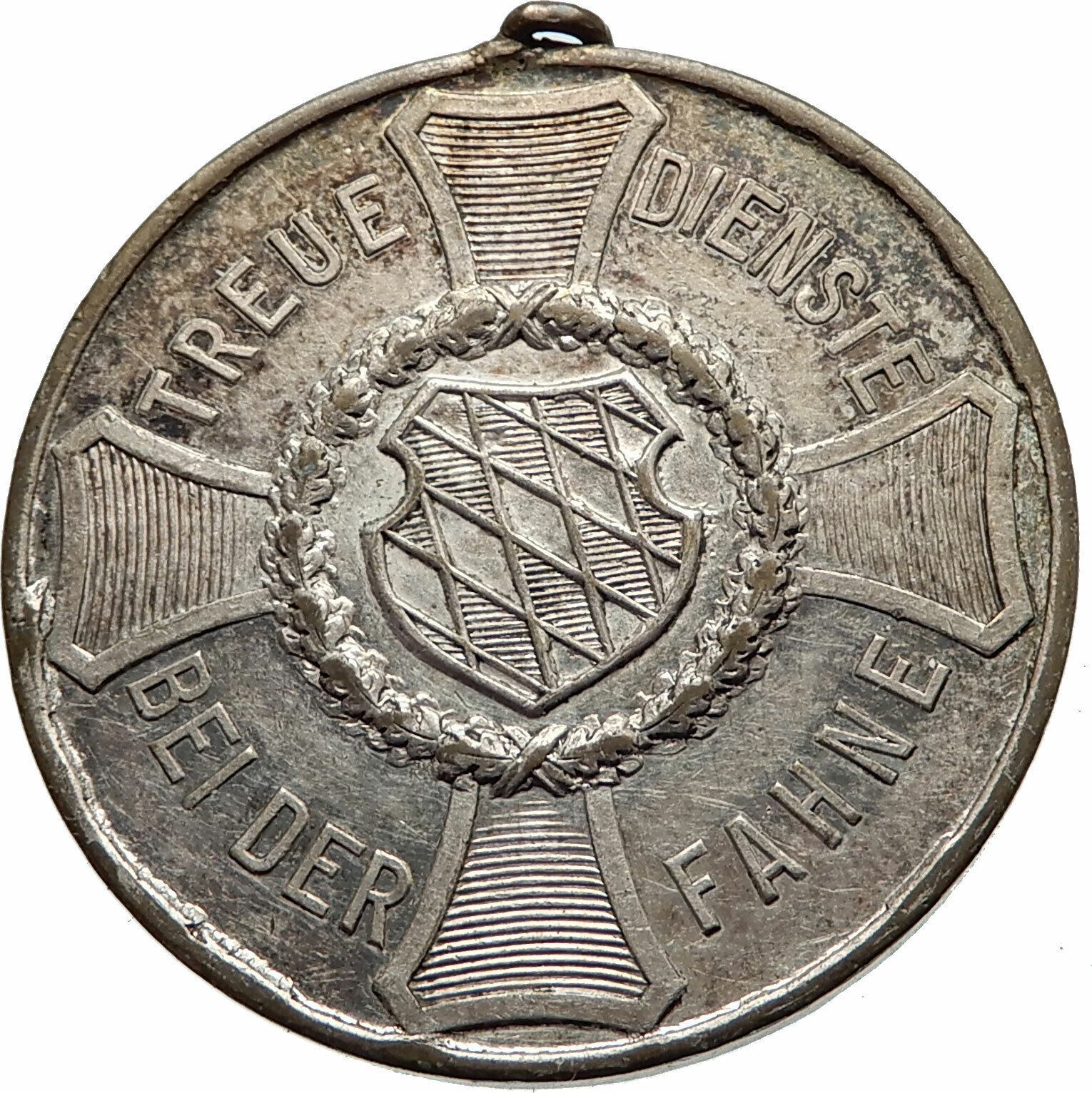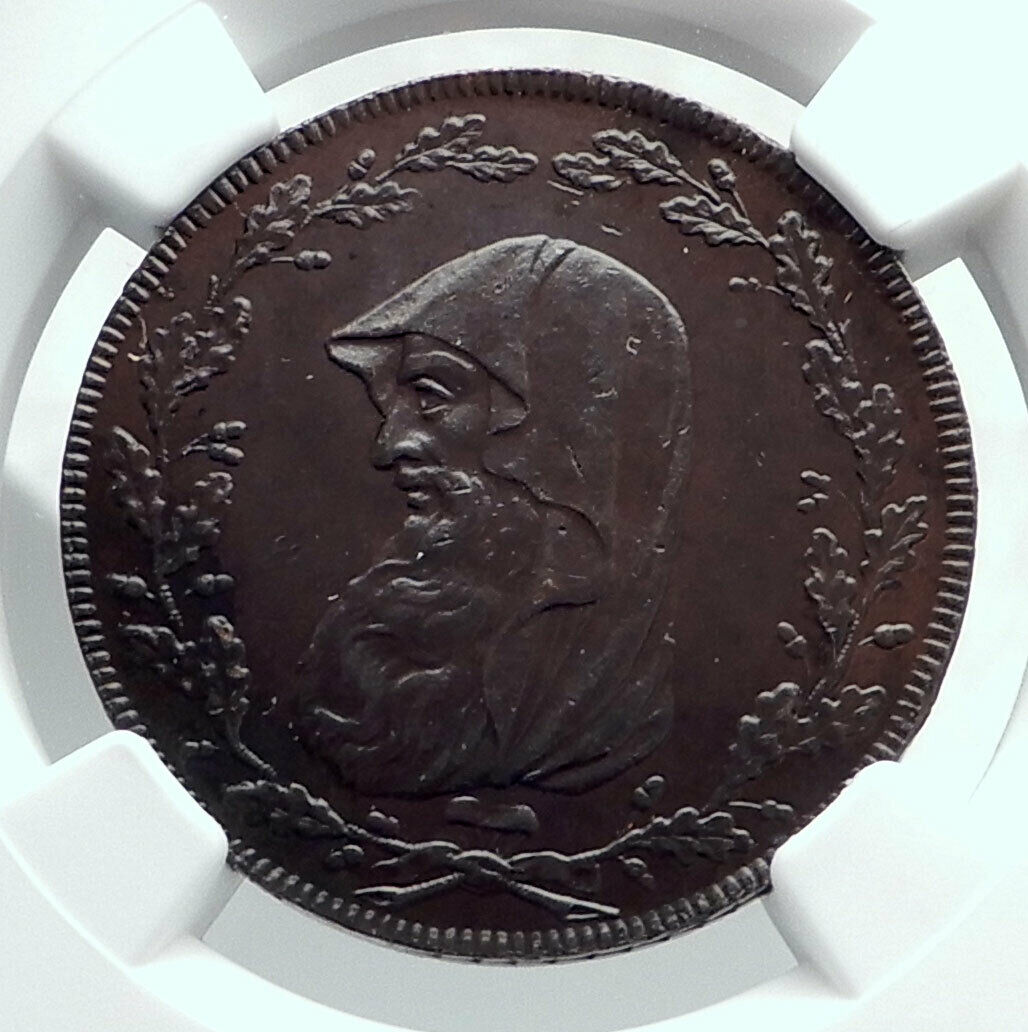|
Great Britain (United Kingdom)
Edward VII – King: 22 January 1901 – 6 May 1910
Coronation Issue
1902 Specimen Matte Silver Medal 30mm (12.73 grams) by G.W. de Saulles
Reference: BHM-3737, Eimer-1871b
EDWARD VII CROWNED 9 AUGUST 1902 ; Crowned bust of King Edward VII right.
ALEXANDRA QUEEN CONSORT 9 AUG. 1902 ; Crowned bust of Queen Alexandra of Denmark right.
You are bidding on the exact item pictured, provided with a Certificate of Authenticity and Lifetime Guarantee of Authenticity.
 Alexandra of Denmark (Alexandra Caroline Marie Charlotte Louise Julia; 1 December 1844 – 20 November 1925) was Queen consort of the United Kingdom and the British Dominions and Empress consort of India as the wife of King Edward VII. Alexandra of Denmark (Alexandra Caroline Marie Charlotte Louise Julia; 1 December 1844 – 20 November 1925) was Queen consort of the United Kingdom and the British Dominions and Empress consort of India as the wife of King Edward VII.
Alexandra’s family had been relatively obscure until 1852, when her father, Prince Christian of Schleswig-Holstein-Sonderburg-Glücksburg, was chosen with the consent of the major European powers to succeed his distant cousin, Frederick VII of Denmark. At the age of sixteen, she was chosen as the future wife of Albert Edward, Prince of Wales, the heir apparent of Queen Victoria. They married eighteen months later in 1863, the same year her father became king of Denmark as Christian IX and her brother was appointed king of Greece as George I. She was Princess of Wales from 1863 to 1901, the longest anyone has ever held that title, and became generally popular; her style of dress and bearing were copied by fashion-conscious women. Largely excluded from wielding any political power, she unsuccessfully attempted to sway the opinion of British ministers and her husband’s family to favour Greek and Danish interests. Her public duties were restricted to uncontroversial involvement in charitable work.
On the death of Queen Victoria in 1901, Albert Edward became king-emperor as Edward VII, with Alexandra as queen-empress. She held the status until Edward’s death in 1910. She greatly distrusted her nephew Wilhelm II, German Emperor, and supported her son George V during the First World War, in which Britain and its allies fought Germany.
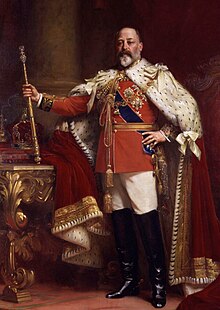 Edward VII (Albert Edward; 9 November 1841 – 6 May 1910) was King of the United Kingdom and the British Dominions and Emperor of India from 22 January 1901 until his death in 1910. Edward VII (Albert Edward; 9 November 1841 – 6 May 1910) was King of the United Kingdom and the British Dominions and Emperor of India from 22 January 1901 until his death in 1910.
The eldest son of Queen Victoria and Prince Albert of Saxe-Coburg and Gotha , Edward was related to royalty throughout Europe. Before his accession to the throne, he served as heir apparent and held the title of Prince of Wales for longer than any of his predecessors. During the long reign of his mother, he was largely excluded from political power, and came to personify the fashionable, leisured elite. He travelled throughout Britain performing ceremonial public duties, and represented Britain on visits abroad. His tours of North America in 1860 and the Indian subcontinent in 1875 were popular successes, but despite public approval his reputation as a playboy prince soured his relationship with his mother.
As king, Edward played a role in the modernization of the British Home Fleet and the reorganization of the British Army after the Second Boer War . He re-instituted traditional ceremonies as public displays and broadened the range of people with whom royalty socialized. He fostered good relations between Britain and other European countries, especially France , for which he was popularly called “Peacemaker”, but his relationship with his nephew, Kaiser Wilhelm II , was poor. The Edwardian era , which covered Edward’s reign and was named after him, coincided with the start of a new century and heralded significant changes in technology and society, including steam turbine propulsion and the rise of socialism . He died in 1910 in the midst of a constitutional crisis that was resolved the following year by the Parliament Act 1911 , which restricted the power of the unelected House of Lords .
.svg/220px-Great_Britain_(orthographic_projection).svg.png) Great Britain, also known as Britain, is an island in the North Atlantic off the north-west coast of continental Europe. With an area of 209,331 km2 (80,823 sq mi), it is the largest island in Europe and the ninth-largest in the world. In 2011 the island had a population of about 61 million people, making it the third-most populous island in the world, after Java in Indonesia and Honshu in Japan. The island is the largest in the British Isles archipelago, which also includes the island of Ireland to its west and over 1,000 smaller surrounding islands. Great Britain, also known as Britain, is an island in the North Atlantic off the north-west coast of continental Europe. With an area of 209,331 km2 (80,823 sq mi), it is the largest island in Europe and the ninth-largest in the world. In 2011 the island had a population of about 61 million people, making it the third-most populous island in the world, after Java in Indonesia and Honshu in Japan. The island is the largest in the British Isles archipelago, which also includes the island of Ireland to its west and over 1,000 smaller surrounding islands.
The island is dominated by an oceanic climate with quite narrow temperature differences between seasons. Politically, the island is part of the United Kingdom of Great Britain and Northern Ireland, constituting most of its territory: most of England, Scotland, and Wales are on the island, with their respective capital cities, London, Edinburgh, and Cardiff. The term Great Britain often extends to include surrounding islands that form part of England, Scotland, and Wales.
A single Kingdom of Great Britain resulted from the Union of Scotland and England (which already comprised the present-day countries of England and Wales) in 1707. More than a hundred years before, in 1603, King James VI, King of Scots, had inherited the throne of England, but it was not until 1707 that the Parliaments of the two countries agreed to form a unified state. In 1801, Great Britain united with the neighboring Kingdom of Ireland, forming the United Kingdom of Great Britain and Ireland, which was renamed the United Kingdom of Great Britain and Northern Ireland after the Irish Free State seceded in 1922.
|




 Alexandra of Denmark (Alexandra Caroline Marie Charlotte Louise Julia; 1 December 1844 – 20 November 1925) was Queen consort of the United Kingdom and the British Dominions and Empress consort of India as the wife of King Edward VII.
Alexandra of Denmark (Alexandra Caroline Marie Charlotte Louise Julia; 1 December 1844 – 20 November 1925) was Queen consort of the United Kingdom and the British Dominions and Empress consort of India as the wife of King Edward VII. Edward VII (Albert Edward; 9 November 1841 – 6 May 1910) was King of the United Kingdom and the British Dominions and Emperor of India from 22 January 1901 until his death in 1910.
Edward VII (Albert Edward; 9 November 1841 – 6 May 1910) was King of the United Kingdom and the British Dominions and Emperor of India from 22 January 1901 until his death in 1910..svg/220px-Great_Britain_(orthographic_projection).svg.png) Great Britain, also known as Britain, is an island in the North Atlantic off the north-west coast of continental Europe. With an area of 209,331 km2 (80,823 sq mi), it is the largest island in Europe and the ninth-largest in the world. In 2011 the island had a population of about 61 million people, making it the third-most populous island in the world, after Java in Indonesia and Honshu in Japan. The island is the largest in the British Isles archipelago, which also includes the island of Ireland to its west and over 1,000 smaller surrounding islands.
Great Britain, also known as Britain, is an island in the North Atlantic off the north-west coast of continental Europe. With an area of 209,331 km2 (80,823 sq mi), it is the largest island in Europe and the ninth-largest in the world. In 2011 the island had a population of about 61 million people, making it the third-most populous island in the world, after Java in Indonesia and Honshu in Japan. The island is the largest in the British Isles archipelago, which also includes the island of Ireland to its west and over 1,000 smaller surrounding islands.

